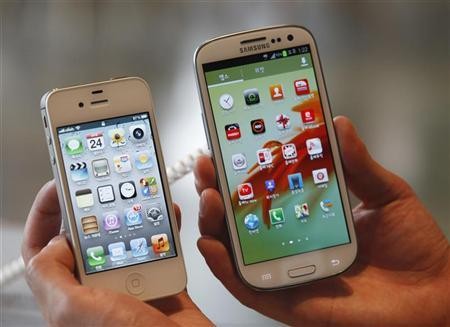After Apple last September filed a motion to add the then a few months old Galaxy S III to its ongoing patent lawsuit against Samsung, and six more Galaxies on Black Friday, it was reported that a trial in that patent infringement case had been scheduled for March 2014. Needless to say, by the time this suit wraps up, Samsung will have sold plenty of flagship devices included in the suit.
Indeed, the Galaxy S III was introduced in May 2012. Samsung is now set to unveil its successor at New York City’s Radio City Music Hall as early as next week. But apparently even March 2014 is too early for Samsung as it now knows the hearings are postponed until it has a chance to exhaust appeals related to the $1.05 August 2012 verdict…
Deciding enough is enough, Apple yesterday filed a brief in federal court in San Jose, California, objecting to U.S. District Judge Lucy Koh’s decision last month to delay Apple’s Galaxy S III patent infringement assertions against Samsung until the South Korean conglomerate is done appealing the August 2012 verdict.
Bloomberg has Apple’s quote from the filing:
This case must proceed now, in order to stop the ongoing sales – and relentless launch – of Samsung’s latest infringing devices, which have caused, and every day continue to cause, continuing harm to Apple.
Of course, Samsung has readily embraced Koh’s ruling.
The second case should be put on hold, Samsung writes, to “promote judicial economy”. Lawyers for the company argue staying the case will “allow the parties to attempt to reach a business resolution of their disputes.”
Well, guess what?
Samsung hasn’t shown willingness so far to reach an amicable solution (Apple is also guilty of this), which leaves an impression it actually prefers litigation over direct talks.
Despite Apple’s legal victories against the Galaxy maker, Tim Cook is learning the hard way that the U.S. legal system often is a double-edged sword. Earlier this month, Judge Lucy Koh nearly halved the $1.05 billion verdict in damages to Apple down to $588 million.
The basis for the ruling?
The court has identified “an impermissible legal theory on which the jury based its award, and cannot reasonably calculate the amount of excess while effectuating the intent of the jury.”
Of course, she ordered a new trial to recalculate damages on the remainder, but the hearings are likely to be postponed until appeals from the first case are exhausted.
Making Apple’s legal initiatives more complicated, some of the remaining Samsung devices already are outdated.
Heck, even the smaller legal victories Apple scored against some Samsung devices in markets overseas pertain to products that either are no longer on sale or are about to be replaced with newer variants.
Don’t these judges know how the tech industry operates?
